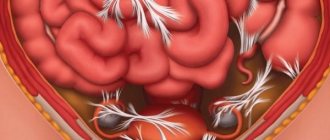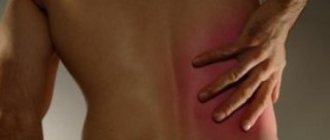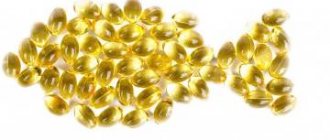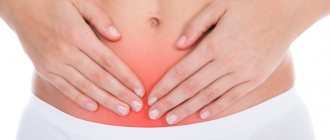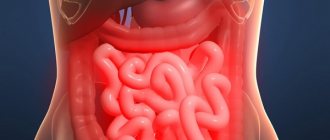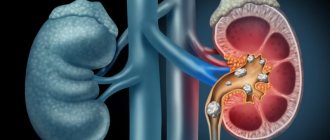When the first signs of the disease appear, some changes occur in the human body. They can be of different nature and occur without symptoms.
But many patients turn to doctors for help when something bothers them. This may include pain, discomfort and other signs.
If the stomach turns and feels nauseous, many patients do not rush to the hospital, citing minor problems in the digestive system.
But whether these manifestations are safe and what they may indicate is worth understanding in more detail.
Signs of gastroenteritis
This symptom can occur with gastroenteritis. The disease is characterized by food poisoning and is provoked by the ingestion of unhealthy foods. The disease appears instantly, 15-30 minutes after eating.
The person feels nauseous, has a stomach ache, and sometimes has vomiting, diarrhea, and fever. In the presence of diarrhea, dehydration occurs.
Therefore, it is very important to maintain a drinking regime. If the disease has reached an extreme stage, convulsions and a rapid drop in body temperature may occur.
Treatment of gastroenteritis
When the first signs of gastroenteritis appear, you need to know what to do and how to treat it. Initially, you need to establish the causes of its occurrence and eliminate them.
- It is urgent to rinse the stomach. But this should only be done if no more than 6 hours have passed since eating. The person in this case is in moderate or serious condition. For these purposes, use warm water in a volume of 2 liters. In another case, if you feel nauseous, but there is no vomiting, it is enough to induce it yourself by pressing the base of the tongue with two fingers.
- A complete abstinence from food for several days is recommended. After 48 hours, dietary foods can be gradually introduced at 4-hour intervals. In this menu you can include tea without sugar, low-fat kefir and crackers. Then you can eat porridge (oatmeal and rice) cooked exclusively in water. Looking at the body's reaction, porridge with milk and eggs (in the form of an omelet or soft-boiled) are gradually introduced. After normalization of all digestive processes and complete recovery, you can introduce vegetables and fruits.
- If your stomach is twisting, you feel nauseous and vomiting, there is no need to try to stop it, especially with medications. It is necessary to give the body the opportunity to cleanse itself of toxic substances that have not had time to be absorbed by the body and penetrate the intestines.
- Provide enhanced drinking regimen. All toxins and harmful substances must leave the body. This is done by vomiting. Water will not only prevent dehydration, but will also remove all the bad things from the body along with urine.
- If your stomach hurts, you can do a light massage. To do this, place your palm on it and perform circular massage movements clockwise.
- If poisoning causes nausea, vomiting and diarrhea, water-salt metabolism is disrupted. Therefore, it is important not only to maintain a drinking regime, but also to replenish salt reserves. To do this, you can drink a glass of water with a spoon of salt.
- Use stool consolidation products if this condition is accompanied by diarrhea. A decoction of oak bark, pomegranate peels and chamomile effectively cope with their task.
- Sorbents and sometimes antibiotics are used as medications. They are aimed at eliminating symptoms and provoking factors.
First aid
If your stomach suddenly begins to twist, and then diarrhea appears, you cannot do nothing. Diarrhea is dangerous due to the rapid removal of fluid from the body, dehydration and the development of dysbacteriosis.
First of all, it is necessary to exclude a possible food provocateur. Until the diarrhea stops, it is better to refrain from eating; there is no appetite during such periods. The fact is that with diarrhea, peristalsis increases, the intestinal walls become sensitive and absolutely all foods irritate the mucous membrane. If you really want to, you can eat a cracker or a savory cookie.
You also need to replenish lost fluid. To do this, it is recommended to drink a glass of clean water or weak tea after each bowel movement. Coffee and carbonated drinks are not suitable.
If the disorder lasts more than 12 hours, and trips to the toilet are very frequent, plain water is not enough. To restore the water-salt balance, you can drink salted water, mineral water without gas, or Regidron solution.
At the first signs of a disorder, you can take one of the following medications:
Activated carbon or Smecta. These drugs are absorbents. They absorb toxic substances that irritate the intestinal mucosa. They do not change the composition of the blood, so they are allowed even for small children and pregnant women. But-shpu. The tablets eliminate intestinal spasms and reduce pain. Espumisan. The drug is available in the form of tablets for adults, and in the form of fruit-flavored syrup for children. After taking this remedy, gas formation and intestinal contractions are reduced. Loperamide, Levomycetin or Phthalazol. These medications calm peristalsis, increase rectal tone, and destroy certain types of bacteria.
Drug therapy at home is only appropriate for adults if there are no other symptoms (acute pain, fever). If diarrhea begins in a child and lasts more than a few hours, you should not give medications until examined by a pediatrician.
Levomycetin Activated carbon
Preventive measures
To avoid such health problems, you need to carefully monitor the quality and expiration date of food.
The hot season is especially dangerous for food poisoning, as food spoils quickly. You should carefully study their composition on the packaging and treat the following products with caution:
- Vegetables and fruits are not the first freshness
- Meat and sausage products
- Egg dishes
- Confectionery products with creams based on cream, cream and cottage cheese
- Porridge and mashed potatoes. They are eaten no later than 2 hours after preparation.
- Mayonnaise and sour cream products, especially salads
Other diseases with these symptoms
If your stomach hurts and turns, and you feel nauseous, this is a clear sign of painful processes in the body.
Nausea indicates the presence of intoxication, and torsion and pain arise as a result of the reaction of nerve endings to an irritant.
All these symptoms can be provoked by the following reasons:
- One of the most common reasons why all these signs appear is appendicitis. The inflamed appendix of the cecum often does not appear immediately. There may be a decrease in appetite and an increase in temperature. The pain may increase gradually and be localized in the right side of the abdomen.
- Presence of adnexitis. This painful process occurs in the pelvis of women. There is a characteristic cramping pain, the patient feels nauseous and the body temperature rises.
- If you feel nauseous and have a stomach ache, this is a clear sign of liver disease. The pain is localized in the right hypochondrium. But if such a disease occurs together with a disease of the pancreas and gall bladder, the nature of the pain changes and spreads to the entire abdominal cavity.
- With a strangulated hernia, all these symptoms appear, supplemented by the presence of flatulence, constipation and bloating. Pain and discomfort spread to the entire abdomen.
- Nausea and discomfort may accompany kidney disease. They are not always associated with lower back pain. Often discomfort affects the abdomen, especially on the sides. In this case, nausea is not caused by food or food poisoning. Often this condition leads to vomiting. An increase in body temperature, difficulty urinating and chills will help recognize this disease.
- Food poisoning can cause intoxication. In this case, the stomach suffers and nausea appears, accompanied by vomiting. The temperature rises and diarrhea occurs.
- The presence of ulcerative processes in digestion. With disorders of the gastrointestinal tract, the stomach hurts, torsion appears in it, accompanied by nausea. If heartburn, bowel problems (constipation or diarrhea) and belching are added to this list of symptoms, this is a clear sign of this disease.
- Reasons related to physiology. During pregnancy, a disturbance in the psycho-emotional state, and even overeating, nausea, pain and cramping in the stomach may occur. None of these manifestations are considered serious.
Pregnancy is a temporary condition, after which the baby is born. Stress can be eliminated, and in order to avoid overeating, you need to make your menu rational.
Salmonellosis. What are the causes of diarrhea?
This is an intestinal infection that arose against the background of pathogenic microorganisms that got inside. They live, reproduce and poison the body with their toxic waste products.
Indeed, this disease is characterized by symptoms such as abdominal pain and diarrhea. But it is worth knowing that they do not interact in any way with food intake.
They can enter the body through food. With this disease there is always a certain incubation period.
Pathogenic microorganisms enter the body in large quantities. They enter the body with food: eggs, meat, milk.
It takes 2 hours for the first symptoms to appear. In this case, the location of pain is in the upper abdomen or near the navel.
Additional signs:
- Malaise.
- Weakness.
- Heat.
- Nausea.
- Vomit.
- Dry mouth.
Feces have a specific character. The stool is dirty green in color, and along with it comes pus and mucus.
With this disease, you should not hesitate or stand in line at the clinic; it is better to immediately call an ambulance at home, because most likely you will be hospitalized.
In what cases do you urgently call a doctor?
- In case of acute pain and nausea, vomiting and all this happens for more than 1 hour, it is necessary to urgently call emergency help. Such symptoms are typical for appendicitis, kidney failure and ulcers.
- If you have been feeling nauseous and have a stomach ache for several days, this is a serious reason to seek help from a doctor. Intoxication processes can occur in a latent form, which has a very detrimental effect on health. This is especially true for children and pregnant women.
- If you experience severe vomiting, nausea, diarrhea and abdominal pain, you should also call a doctor. This is fraught with dehydration, and such symptoms appear in acute intestinal poisoning. An inflamed appendix also manifests itself, which is another reason to call emergency help.
- With many gynecological problems, such as ovarian rupture and ectopic pregnancy, the stomach also hurts and nausea appears, turning into vomiting. This state lasts 1-2 hours.
Diseases of the liver and biliary tract
Bile has an important task in the body. She will have to deal with the breakdown of fats throughout a person’s life.
When it is not enough, but the fat does not have time to transform and comes out with loose stools after eating. At the same time, the diarrhea seems to be oily. The color is light, almost white, with an oily sheen, so-called steatorrhea.
Diarrhea after eating is caused by the following pathologies:
- Cholelithiasis.
- Pressure from tumor-like neoplasms.
- Biliary cirrhosis of the liver.
Along with diarrhea and abdominal pain after eating, other symptoms also appear. They have characteristic features. Symptoms:
- Jaundice. May be of various origins. With obstructive jaundice, bile cannot exit into the duodenum due to obstruction or compression of the ducts, so it begins to be absorbed into the blood. With parenchymal jaundice, direct bilirubin enters the blood due to insufficient liver function. In both cases, a person develops a yellow tint to the skin and sclera of the eyes.
- Some bile must exit through the kidneys. If this does not happen, the skin acquires a black-bronze color.
You should not eat fried or fatty foods. This will definitely cause pain in the abdomen. The pain has a cramping and unrelenting pace. Often the place of sensation occurs on the right side of the hypochondrium.
Contraindications before emergency arrival
If symptoms are detected that indicate serious illness, call an ambulance. What not to do before the doctor arrives:
- The use of heating pads on the back and stomach is strictly contraindicated. This is fraught with rupture of inflammatory cavities or provoke the presence of extensive diffuse intoxication.
- You should not take painkillers. The doctor must see the whole picture of the disease in detail. Medicines can dull the pain, making it difficult to diagnose the disease. If the pain is acute and intense, you can take no-shpa.
- If the pain is acute, massages and rubbing are strictly unacceptable. This can also lead to internal ruptures of the inflamed area, and all the toxins will spread throughout the body in the shortest possible time.
- You cannot self-prescribe treatment or take unknown medications. They can not only harm, but also aggravate the situation.
If you experience nausea, unpleasant or painful sensations in the abdomen, you need to listen to your body. It is necessary to identify the causes of the disease and eliminate them.
Additionally, pay attention to accompanying symptoms. Very often they can be used to identify the disease. If symptoms intensify and last more than an hour, you should seek help from a doctor.
He will be able to correctly diagnose the disease, determine why it appeared, and prescribe the correct treatment. You cannot self-medicate, this leads to bad consequences.
What to do when your stomach hurts
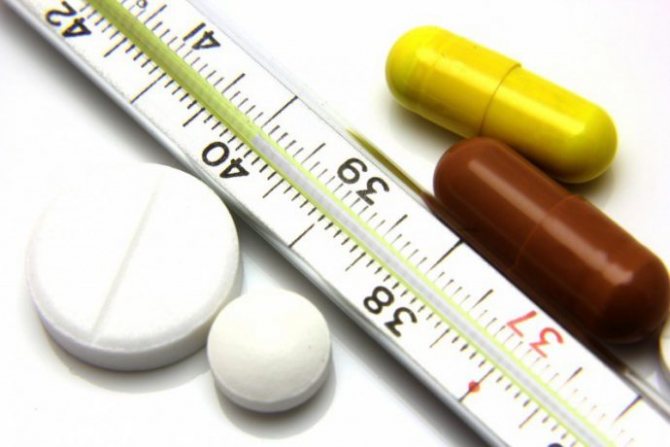
If the discomfort is associated with mild poisoning, food incompatibility or other reasons not related to serious diseases, then you can cure yourself. This is evidenced by accompanying symptoms. There is a list of signs in which self-medication can be dangerous; you should immediately consult a doctor, or better yet, call an ambulance.
These include:
- High temperature, fever, chills. Signs indicate an inflammatory process; it is necessary to know its exact location and provoking factors. Painkillers and antipyretics will only temporarily relieve symptoms, but will not eliminate the root cause;
- Sharp or unbearable pain. Severe pain characterizes a number of infectious and severe diseases, including dysentery, salmonellosis, intestinal and viral pathologies, hernia, appendicitis, and so on. Classic remedies for diarrhea and painkillers cannot cope in such cases; urgent qualified help is needed in the form of diagnosis and subsequent targeted treatment;
- Any bleeding, including from the nose, anus, or genitals. One of the dangerous symptoms indicating internal tissue damage. The situation can develop rapidly; there is a risk of infection spreading to other internal organs and other equally serious consequences;
- Increased heart rate, sudden change in blood pressure, increased heart rate. Disorders of the gastrointestinal tract with symptoms of dysfunction of the cardiovascular system are alarming indicators of the body. The main ones may even be precisely the pathological processes of the blood supply, for example, a pre-infarction state;
- Pale skin, excessive sweating;
- Frequent bowel movements and vomiting. In the absence of measures to eliminate frequent vomiting or diarrhea, the body will approach dehydration, and problems with blood pressure, blood supply and other functions may begin.
If at least one of the listed symptoms is present and at the same time there is a twisting of the lower abdomen with varying intensity, then you need to call an ambulance.
Treatment methods
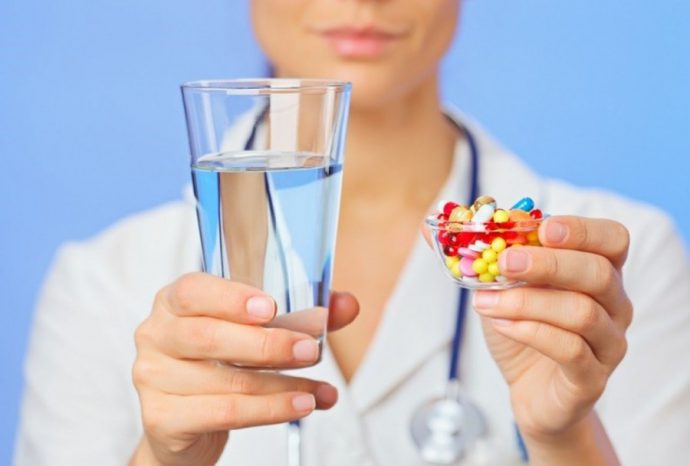
If you do not consider the option of serious poisoning or the development of gastrointestinal pathologies, which require hospitalization, then you can try to cope with the problem of stomach cramps on your own.
The following medications will help:
- Antibiotics, agents that neutralize infectious foci. Taking such drugs is advisable in cases of obvious poisoning and diarrhea. As a rule, the drugs have a wide spectrum of action and are active against a variety of pathogenic compounds that provoke disorders of the gastrointestinal tract. You can consider taking Levomycetin, Biseptol, Fthalazol and other drugs with similar effects. It is important to follow the dosage; if there is no positive result, you should contact a medical institution for an accurate diagnosis and selection of treatment;
- Medicines that relieve flatulence and constipation. The lower abdomen sometimes twists precisely because of the accumulation of gases. If there is no urge to have a bowel movement, and you feel “bloated” in the stomach, then you can take Espumezan. For obvious constipation, medications that stimulate intestinal motility, for example, Trimedat, Duphalac, will help;
- Medicines against diarrhea. If your stomach is cramping and diarrhea persists for several hours, then medications that reduce intestinal activity will help alleviate the condition. It is important to follow the dosage to avoid subsequent constipation. Imodium or an analogue of Loperiamide are suitable for these purposes;
- Agents that help remove compounds harmful to the body or enterosorbents. Taken as a preventive measure, as an addition to the main treatment of poisonings and intoxications. They have the ability to retain various chemical elements on their surface and remove them through the urinary system, along with feces. Activated carbon, Smecta, Polysorb have a good effect;
- For enzyme deficiency, which can be manifested by indigestion and a feeling of heaviness, remedies such as Mezim, Pancreatin, Creon, and Fistal will help. The drugs are recommended not only for already manifested symptoms, but also for preventive purposes when heavy foods were consumed or a large portion of food was eaten;
- Probiotics. Sometimes the lower abdomen twists due to dysbiosis, leading to stool disorders and pain. You can restore beneficial microflora with the help of probiotics, and maintain normal conditions for the development of the necessary microorganisms - prebiotics. If you already have problems with the intestines, it is better to pay attention to probiotics, for example, Acepol, Linex, Bifikol or other means of identical action. It is advisable to pay attention to combination medications or synbiotics; they combine probiotics and prebiotics at the same time. Such drugs include Bifiform, Polybacterin, Baktistatin;
- Antispasmodics. It should be used if pain occurs in the form of spasms. An antispasmodic, for example, Drotaverine, No-Shpa, Baralgin, will help eliminate such reactions.
